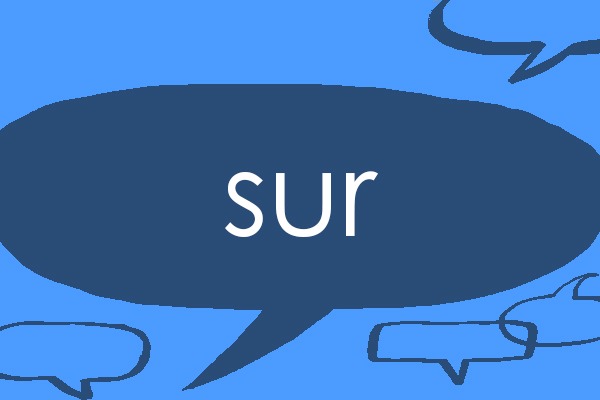Welcome back to our weekly blog for French learners. We’ve got a new word for you to learn about – this week it’s sur.
First of all, you can listen to an audio clip of how to pronounce it:
function playAudio(url) { new Audio(url).play(); }But what does sur mean? It’s a preposition which in English we’d translate as on. If you want to remind yourself about these types of words, take a look at our Easy Learning French Grammar page about common prepositions.
Although it’s a very short and simple word, we can use it to mean a lot of different things:
J’ai acheté un nouveau livre sur les oiseaux tropicaux. I bought a new book on tropical birds.
Ne montez pas sur le toit, c’est trop dangereux ! Don’t go up on the roof, it’s too dangerous!
Il faut couper le bois huit mètres sur deux. The wood needs to be cut eight by four metres.
« Tu as réussi à l’examen ? » – « Non, j’ai eu neuf sur vingt. » “Did you pass the exam?” – “No, I got nine out of twenty.”
Quand vous partez, veuillez laisser les clés sur la table. When you depart, please leave the keys on the table.
Son nouveau film se base sur son enfance. Her new film is based on her childhood.
avoir le dessus sur quelqu’un to have the upper hand over someone
avoir les pieds sur terre to be down-to-earth; to be grounded (literally to have feet on the ground)
sur internet on the internet; online
When you’re translating from English into French, you should know that the prepositions sur and à can both be used to mean on in English. However, sur usually means ‘on top of something’, in a physical sense:
sur la télé on top of the TV set
à la télé broadcast on TV
Despite their differences in French, we could translate both of these phrases as on the TV in English.
One thing you might notice is that the letter u sometimes has a circumflex accent like this: sûr. If you see a circumflex, it tells you something very important – it’s not the same word! We already know that sur means on, but the word sûr is an adjective which means sure.
« Vas-y, tu peux prendre la dernière. » – « Tu es sûr ? » “Go ahead, you can have the last one.” – “Are you sure?”
Be wary of this, you always need to be sure you understand the translation and context.
Remember what you’ve learnt about the preposition sur in this week’s blog, we hope you’ll be back next week to make a start on learning another French word of the week.
Written by Holly Tarbet, freelance copywriter and editor.
All opinions expressed on this blog are those of the individual writers, and do not necessarily reflect the opinions or policies of Collins, or its parent company, HarperCollins.



